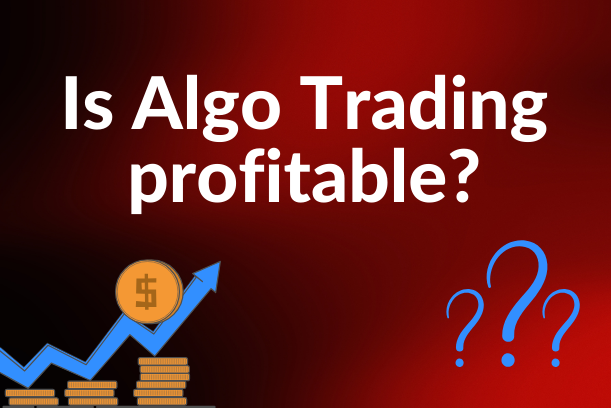Top 10 Must-Read Algo Trading Books for 2024
Algo Trading Specifics
1. Building Winning Algorithmic Trading Systems – Algo Trading books
By Kevin J. Davey
If you're hesitant to dive into a highly technical and complex read filled with challenging concepts that might stretch your mental capacity, especially in the field of algorithmic trading, then this book is an ideal starting point. Kevin J. Davey narrates his story much like a personal journal, sharing two decades of experiences in the trading arena. Unlike other books that demand intense focus on every page, this one provides an enjoyable and engaging journey that gently introduces you to trading and programming concepts.
The book is structured into seven key sections: (1) A Trader's Journey, (2) Your Trading System, (3) Developing a Strategy, (4) Creating a System, (5) Considerations Before Going Live, (6) Monitoring a Live Strategy, and (7) Cautionary Tales. Davey's book is an excellent entry point among algo trading books for those not yet ready to tackle highly technical and complex texts.
In the opening section, Davey openly discusses common mistakes that every trader makes, including those he faced early in his career. He then explores fundamental methods for testing any trading system, introducing tools like Monte Carlo simulation to analyze system performance. As the book progresses, Davey details his current methodology for building successful algorithmic trading systems. Before designing a system, he emphasizes the importance of setting specific, attainable, and relevant goals, establishing metrics to measure progress, and setting deadlines for system development.
2. Python for Finance – Algo Trading books
By Yves Hilpisch
In the vast landscape of programming languages, while C++ is an option for developing algorithms, it's certainly not the only one. So why opt for Python?
Firstly, Python offers strong support for AI and machine learning frameworks, as well as big data—essential components in algorithm development. Additionally, for newcomers to programming, Python is known for its simplicity and readability, making it an ideal choice to begin with.
Yves Hilpisch's book earns the second spot on our list of top algo trading books, as it guides readers through essential programming concepts necessary for building algorithms. The focus on Python in finance adds significant value for those looking to delve deeper into the field. The book is divided into several sections: (1) Why Python for Finance, (2) Mastering the Basics, (3) Financial Data Science, (4) Algorithmic Trading, and (5) Derivatives Analytics.
Hilpisch starts by briefly exploring the history of Python before discussing its applications in finance, emphasizing aspects like infrastructure, syntax, efficiency, and productivity. Moving on, he covers basic programming concepts and demonstrates how they apply to data analysis. This foundation paves the way for a swift advancement into algorithmic trading, covering topics such as data retrieval, strategy implementation, using neural networks, simulating financial models, and ultimately building successful algorithmic trading systems.
3. Algorithmic Trading: Winning Strategies – Algo Trading books
By Ernie Chan
Aimed at readers who already have experience in developing algorithmic trading strategies, Algorithmic Trading by Ernie Chan is an invaluable resource. The author notes that the mathematical requirements for trading stocks, futures, and currencies are significantly less stringent than those for derivatives trading. According to Chan, anyone familiar with introductory calculus, linear algebra, and statistics should find the material accessible.
Spanning 200 pages, the book is divided into eight chapters, serving as a guide for those with prior experience in algo trading. The chapters include: "Backtesting and Automated Execution," "The Basics of Mean Reversion," "Implementing Mean Reversion Strategies," "Mean Reversion of Stocks and ETFs," "Mean Reversion of Currencies and Futures," "Interday Momentum Strategies," "Intraday Momentum Strategies," and "Risk Management."
The first chapter emphasizes the critical importance of backtesting any proposed strategy before putting it into practice. The author then explores the intricacies of mean reversion, demonstrating how traders can periodically profit from such strategies. Finally, Chan delves into the development and testing of momentum strategies, providing various examples across futures, ETFs, and commodities. Importantly, the concepts discussed in the book are also applicable to digital currencies and other non-traditional assets.
4. Machine Learning for Algorithmic Trading – Algo Trading books
By Stefan Jansen
Ranking fourth on our list of algo trading books, this book earns its place by thoroughly covering the foundational and intricate aspects necessary for a deep understanding before tackling more advanced works in this genre. Stefan Jansen adopts a comprehensive approach, seamlessly integrating machine learning, stock trading, and algorithmic coding rather than focusing on these areas separately. As you work through the content, expect to consult external sources regularly, but the time invested in understanding Jansen's material will undoubtedly make it easier to grasp even more complex texts in the field.
Embarking on a substantial journey of 820 pages, you might ask, "What will I learn?" The book is divided into four parts, each addressing different challenges. It begins with data sourcing (1), moves on to model optimization (2), explores natural language processing (3), and concludes with deep and reinforcement learning (4).
In the first section, Jansen skillfully demonstrates how to use Python to access and manipulate trading and financial statement data. The reader is then introduced to supervised and unsupervised machine learning models, with practical insights into their application in trading scenarios. A dedicated portion of the book focuses on processing natural language to extract alternative data. Additionally, the reader learns how to apply deep reinforcement learning and, more broadly, how to model an agent capable of intelligently interacting with financial markets.
5. Advances in Financial Machine Learning – Algo Trading books
By Marcos Lopez de Prado
Rounding out our list of top algo trading books, this title is a challenging read, designed for those already adept at statistical data analysis, time series analysis, machine learning, portfolio management, and Python programming.
The book spans 353 pages in print and is organized into five parts: "Data Analysis," "Modeling," "Backtesting," "Useful Financial Features," and "High-Performance Computing Recipes." Interestingly, this complex material serves as the foundation for a multi-month course at Cornell University.
Written by Marcos Lopez de Prado, the book delves into various data types, including market and alternative data. De Prado illustrates how to apply meta-labeling, delves deeply into labeling and backtesting, and utilizes machine learning to optimize outcomes. The content also covers the use of supercomputers in financial algorithms, addressing critical topics such as backtesting pitfalls, hierarchical risk parity, deflated Sharpe ratios, tests for explosiveness, entropy estimators, and microstructural features—chapters that are essential for readers tackling this demanding material.
6. Algorithmic Trading and DMA: An Introduction to Direct Access Trading Strategies – Algo Trading books
By Barry Johnson
Barry Johnson's Algorithmic Trading and DMA is a comprehensive guide that bridges the gap between trading theory and practical implementation. This book is ideal for both beginners and experienced traders looking to deepen their understanding of direct market access (DMA) and the underlying mechanics of algorithmic trading. Johnson provides an in-depth exploration of how modern electronic markets function, the variety of trading strategies available, and how these strategies can be effectively implemented using algorithms.
The book is divided into three main sections: the first part introduces the basics of electronic markets and trading, explaining the evolution of market structure and the role of different market participants. The second part delves into trading strategies, covering a range of approaches from simple execution algorithms to more complex strategies based on statistical arbitrage and market making. The final section focuses on the practical aspects of implementing these strategies, including programming considerations, system architecture, and risk management.
Johnson also provides valuable insights into the regulatory environment, market microstructure, and the future of algorithmic trading. Algorithmic Trading and DMA is one of the essential algo trading books for anyone looking to gain a comprehensive understanding of how to develop and implement trading algorithms in today's fast-paced financial markets.
7. Quantitative Trading: How to Build Your Own Algorithmic Trading Business – Algo Trading books
By Ernie Chan
In Quantitative Trading, Ernie Chan offers a practical guide to building your own algorithmic trading business. Drawing from his extensive experience in the quantitative trading industry, Chan provides readers with a step-by-step approach to developing, testing, and implementing trading strategies. This book is particularly valuable for individual traders and small firms looking to enter the world of algorithmic trading without the backing of a large institution.
The book covers key topics such as finding a profitable trading idea, backtesting and evaluating strategies, understanding the risks involved, and setting up the necessary infrastructure for automated trading. Chan emphasizes the importance of rigorous statistical analysis and the avoidance of common pitfalls such as overfitting and data snooping bias.
Throughout the book, Chan shares practical insights and real-world examples, making complex concepts accessible to readers with a basic understanding of statistics and programming. Quantitative Trading is a must-read among algo trading books for those aspiring to create their own trading algorithms and run a successful quantitative trading operation.
8. High-Frequency Trading: A Practical Guide to Algorithmic Strategies and Trading Systems – Algo Trading books
By Irene Aldridge
Irene Aldridge's High-Frequency Trading provides an in-depth look into the world of high-speed algorithmic trading. This book is geared towards professionals and advanced traders who are interested in understanding the intricacies of high-frequency trading (HFT) strategies and systems. Aldridge combines theoretical concepts with practical applications, offering readers a comprehensive view of the HFT landscape.
The book covers a range of topics, including the mechanics of electronic trading, statistical and econometric models used in HFT, risk management techniques, and the technology infrastructure required to support high-speed trading systems. Aldridge also addresses the regulatory and ethical considerations surrounding HFT, providing a balanced perspective on its impact on financial markets.
With detailed explanations and case studies, High-Frequency Trading equips readers with the knowledge needed to develop and implement their own HFT strategies. As one of the more advanced algo trading books, it is an invaluable resource for those seeking to excel in the high-frequency trading arena.
9. Inside the Black Box: The Simple Truth About Quantitative Trading—Algo Trading books
By Rishi K. Narang
In Inside the Black Box, Rishi K. Narang demystifies the world of quantitative trading, providing an accessible overview of how quantitative trading strategies work. Aimed at both practitioners and those with a general interest in finance, the book explains complex concepts in a clear and straightforward manner, shedding light on the "black box" of algorithmic trading.
Narang covers various aspects of quantitative trading, including the types of models used, the role of data and technology, risk management practices, and the organizational structure of quant trading firms. He also discusses common misconceptions and challenges faced by quantitative traders.
By breaking down the components of quantitative strategies and explaining how they are developed and implemented, Inside the Black Box helps readers gain a solid understanding of the inner workings of algo trading systems. This book is an excellent addition to any list of essential algo trading books, providing valuable insights for both newcomers and experienced professionals.
10. Algorithmic and High-Frequency Trading – Algo Trading books
By Álvaro Cartea, Sebastian Jaimungal, and José Penalva
Authored by experts in the field, Algorithmic and High-Frequency Trading offers a rigorous examination of the mathematical and statistical techniques used in modern algorithmic trading and high-frequency trading. This book is suitable for advanced readers, including graduate students, researchers, and professionals seeking a deep understanding of the quantitative methods underpinning trading algorithms.
The authors cover a wide range of topics, including market microstructure theory, optimal execution strategies, statistical arbitrage, machine learning applications, and risk management in high-frequency contexts. The book also delves into the economic and regulatory implications of high-frequency trading, providing a comprehensive view of the field.
With its blend of theoretical foundations and practical applications, Algorithmic and High-Frequency Trading stands out among algo trading books as a definitive guide for those looking to master the complexities of algorithmic and high-speed trading strategies.
In conclusion, these top 10 algo trading books offer invaluable insights into the world of algorithmic trading. Whether you're just starting out or looking to deepen your expertise, these algo trading books provide the knowledge and tools necessary to succeed in today's dynamic financial markets. By exploring different strategies, programming languages, and machine learning techniques, these books serve as essential resources for anyone interested in mastering algorithmic trading.
Also Recommended:



